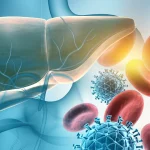What is haemoptysis?
Haemoptysis is the medical term for coughing up blood from the lungs or bronchial tubes. It can range from small flecks of blood to a lot of blood. It can be mild or indicate something serious.
It is haemoptysis if the blood comes from the lungs or bronchial tubes (the tubes that bring air to the lungs). Haemoptysis does not include having blood in the saliva due to bleeding in the mouth, upper airway or from vomiting of blood from the gut.
Haemoptysis is not usually life threatening, but if you cough up blood, it is still very important that you see your doctor to get checked out.
How can you tell if you have haemoptysis?
It can be hard to identify where the bleeding is coming from. If it is haemoptysis, it is likely that:
- the sputum (what you cough up) is frothy, or looks liquid or clotted
- the blood is bright red or pink
- you also have lung disease
- you do not have nausea or vomiting
If the blood is coming from the gut, you are also likely to feel nauseous or be vomiting. The sputum will look like it contains coffee grounds, and the blood will be brown to black or mixed with food particles.
Depending on the cause of the haemoptysis, you might also have:
- fever
- cough
- night sweats
- weight loss
- fatigue
- difficulty breathing or shortness of breath
- chest pain
What causes haemoptysis?
One of the most common causes of haemoptysis is an infection such as bronchitis or pneumonia. If this is the case, you might also have a cough and fever.
Another common cause is bronchiectasis, a disease where the large airways in the lungs are damaged. In this case, you might have recurrent chest infections and a productive cough.
Other causes of haemoptysis include:
- chronic obstructive pulmonary disease (COPD)
- lung cancer
- tuberculosis
- pulmonary embolism or a blood clot in the arteries that supply blood to the lungs
- a lung abscess
- lung injury
- having something stuck in the airway
- using drugs
- having fluid in the lungs due to a heart condition
- being on anticoagulant therapy (blood-thinning medications)
- having cystic fibrosis
Sometimes, doctors cannot find the cause.
When should I see my doctor?
Even if you cough up a small amount of blood, see a doctor promptly.
How is haemoptysis diagnosed?
Haemoptysis is managed according to the amount and rate of bleeding. If your condition is life threatening, you may need urgent treatment before any investigations are done.
To find out the cause of coughing up blood, the doctor will ask questions that may include the following:
- How much blood are you coughing up?
- How many times have you coughed up blood?
- How long have you been coughing up blood for?
- What other symptoms do you have?
You will probably be asked about your past and current medication and conditions, and whether you smoke.
Your doctor will check you for any signs of diseases that can cause you to cough up blood. They may take your temperature to check for an infection and look up your nose to make sure the bleeding is not from there.
Depending on your condition, you may need to have a chest x-ray or CT scan to detect any problems. You may also need to have a bronchoscopy, which is a procedure to see the inside of the airways and lungs.
If a blood clot in the lung is suspected, you may need a lung ventilation-perfusion scan, which looks at air flow and blood flow in the lungs.
Other tests that may be done include blood tests and a test to look for infection-causing bacteria in your saliva.
How is haemoptysis treated?
The type of treatment will depend on the cause of your condition. For example, if a bacterial infection is the cause, you will probably be treated with antibiotics.
In severe haemoptysis, you may need a surgical procedure to stop the bleeding before the cause is found.


